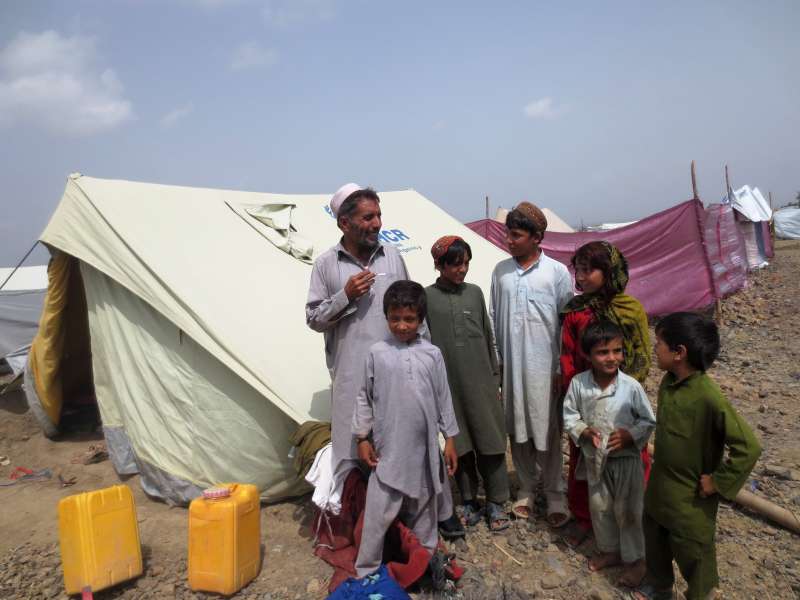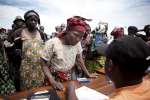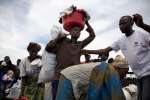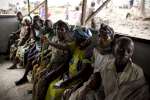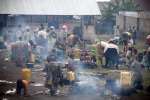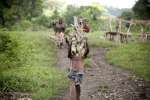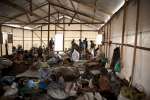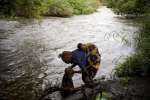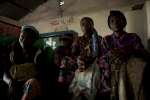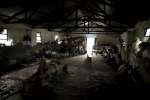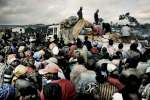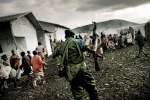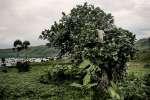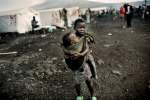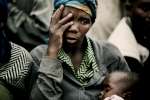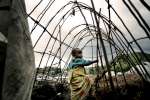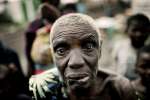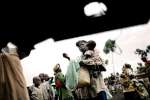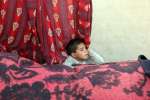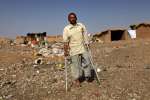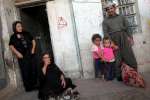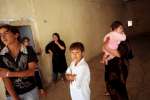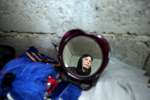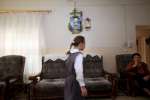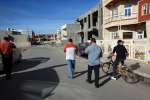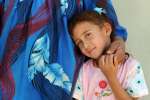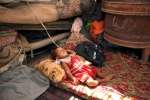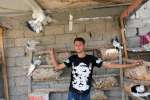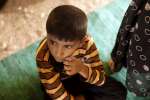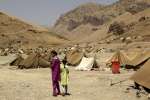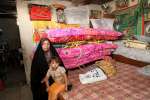Displaced Pakistani families find warm welcome in neighbouring Afghanistan
Making a Difference, 28 July 2014
GULAN CAMP, Afghanistan, July 28 (UNHCR) – She walked for three days and three nights. Her daughters-in-law have boils and calluses on their feet from the long trek and are relieved to be treated in the camp clinic. Gul lifts her salwar – loose pleated trousers – to show a scar forming on her heel and says, "at least I am alive. My children and grandchildren are alive and we are safe."
The 45-year-old matriarch is one of the thousands forced to flee their homes in Pakistan since mid-June as military operations continue in North Waziristan. Some 13,000 families have fled to the neighbouring provinces of Khost and Paktika in Afghanistan, and numbers continue to rise every day.
Almost 3,000 of those displaced families call Gulan Camp in Khost home. From Friday this week it will be run by UNHCR in coordination with local authorities. Most families have been taken in by relatives and friends in local communities.
As the displaced arrive from Pakistan, UNHCR registers them and gives them essential relief items such as solar lights, buckets, plastic sheets, cooking utensils and tents. They get food from the UN's World Food Programme.
"The tent gives us shade and privacy," says Gul, grateful that at least she and the six other women in the family have roof over their head. The men in the family manage out in the open in this harsh, arid landscape that provides no shade from the scorching summer sun.
Last Thursday and Friday, UNHCR distributed tents and essential relief items to an additional 650 families to help them celebrate the Islamic Eid holiday that ends Ramadan in relatively greater comfort.
Faizullah, 40, his wife Lalpura, 35, and their nine children were pleased to get help from the UN refugee agency after also walking three days to reach the camp. "It was very difficult walking with the children," says Lalpura. "We had nothing to eat. Villagers along the way gave us food for the children," the youngest of whom is six.
They did not manage to bring anything after their home was bulldozed: "Even the clothes I am wearing were donated by others," says Faizullah. Now, he adds, "the tent is our home. And I have used the plastic sheets to make a boundary wall for our family. This is our private space," he says.
He even knew what to do – thanks to mine awareness education in the camp – when he found unexploded ordnance not far from his tent. The camp, which was set up by the displaced people on their own before UNHCR was asked to take over management, is located on a former minefield. It has been demined three times, but 10 anti-tank mines were found when latrines were being dug, so mine clearance is being conducted yet again as a top priority.
"We have been told not to touch anything that is metallic or granite," says Faizullah. "If we see something like this, we know we have to inform the officials. They came and took it away."
Here in the camp, the displaced Pakistanis say the kindness of Afghan authorities and the people of Khost stands in contrast to the fighting they fled. "When we reached the Afghan checkpoint on the border, we were offered tea and water," says Rahmatullah, a 35-year-old father of seven. "They gave my wife a stool to sit on. They were so kind, I can never forget this."
Like others in the camp, he has no plans to return home any time soon. "In Pashto, we have saying: 'If a mother has no milk how can she feed her child?' Afghanistan is a poor country and yet they have helped us," says Rahmatullah. "All of us who have come from Waziristan are grateful for this."
By Nayana Bose in Gulan Camp, Afghanistan




